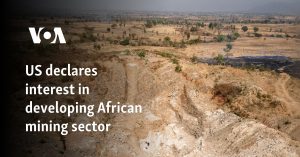Botswana’s Khwai Private Reserve has introduced a revitalized luxury safari experience with the refurbishment of Elephant Pan, formerly known as Hyena Pan.
The updated camp reflects a commitment to low-impact, high-quality tourism while maintaining exclusivity in one of the country’s prime wildlife areas, according to a report by Southern and East African Tourism Update.
Elephant Pan’s redesign prioritizes sustainability and conservation, aligning with Botswana’s high-value, low-volume tourism model.
The camp operates on solar power, enforces strict water conservation measures, and adheres to ecological guidelines to minimize its environmental footprint.
Situated in a privately managed concession, the camp’s strategic location offers year-round game viewing, including sightings of elephants, lions, leopards, and wild dogs. Private verandas overlook a waterhole frequently visited by wildlife, enhancing the immersive nature experience.
As part of the refurbishment, Elephant Pan features eight tented suites with en-suite bathrooms, a main lounge and dining area with panoramic bushveld views, a plunge pool, and a dedicated photographic hide designed for close-up wildlife photography.
The camp also offers night safaris, off-road excursions, and guided walking tours, experiences not permitted in Botswana’s national parks.
The revitalization of Elephant Pan underscores the growing demand for eco-conscious luxury accommodations in the outdoor hospitality sector.
With travelers increasingly seeking authentic and responsible safari experiences, businesses operating in this space must balance guest expectations with sustainable practices.
Investments in conservation-driven tourism, such as those seen at Elephant Pan, highlight opportunities for industry professionals to integrate eco-friendly operations while maintaining premium offerings.
Investments in conservation-driven tourism, such as those seen at Elephant Pan, highlight opportunities for industry professionals to integrate eco-friendly operations while maintaining premium offerings.
Additionally, the camp’s partnership with local communities ensures that tourism revenue contributes to conservation efforts and regional development.
This approach reflects a broader trend within the safari and outdoor hospitality industries, where sustainability and community engagement are becoming central to business strategies.








